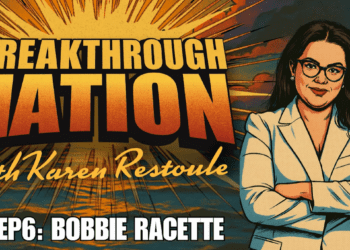Writing in the Ottawa Citizen, managing director Brian Lee Crowley discusses the issue of the illegal ivory trade and how we could prevent the slaughtering of elephants. “Consider that there is not a single domesticated species in the world that is endangered. That is because there are people whose livelihood depends on the health and well-being of those animals,” writes Crowley.
Brian Lee Crowley – FEBRUARY 28, 2014
What animal most personifies the grace, majesty and power of nature than the elephant? Try to visualize the African wilderness and few images will come more readily to your mind’s eye than the elephant herd peacefully ambling through the savannah.
But a far darker side of the elephant’s life was revealed in all is awful detail at the recent conference on the illegal trafficking of wildlife products held in London, England. At the conference the case was made that last year alone 30,000 elephants were slaughtered simply for their ivory, their carcasses left to rot in the veldt. Because of the vast sums to be made in delivering such products to consumers, principally in Asia, organized crime and terrorist organizations have become part of a global criminal enterprise devoted to the uncontrolled killing of this global natural patrimony. These despicable activities rightly shock the conscience of humanity.
The world’s governments gathered in London committed themselves to work to defeat this $10-billion trade through more stringent bans, harsher enforcement, and destruction of captured ivory and other illegal products.
America, for example, is engaging in some impressive moral posturing, designed to make Americans feel good about themselves, regardless of the consequences for the poor and dispossessed in the developing world, let alone for elephants. They propose an outright ban of all ivory trade, legitimate or illegal, in the US, and are pushing for one worldwide. And under pressure from western countries, several African states that depend on the legal ivory trade have agreed to submit to a ten year moratorium on ivory harvesting. Campaigners call for the outright banning of the ivory trade in China to destroy the market.
As laudable as the good intentions of these governments may be, however, the question that they should be wrestling with is whether more energetic enforcement of a policy that has already failed so badly is the right answer. You know what they say about insanity and doing the same thing over and over again expecting different results.
Remember, for example, that these criminal slaughters of innocent animals take place in parts of the world where the state is the weakest, such as sub-Saharan Africa. Poorly paid and equipped local game wardens and police are no match for highly organized criminals armed with bribes, powerful weapons and helicopters, for example. If the banning strategy is to have any hope of success it depends on authorities in China, the most important market, shutting down a highly lucrative trade when they are unwilling or unable to keep melamine out of milk. I personally wouldn’t stake elephants’ future on China’s trustworthiness.
A more promising approach would come at the problem by strengthening the incentives for locals to husband and humanely develop the resource that elephants and their ivory, for example, represent.
Consider that there is not a single domesticated species in the world that is endangered. That is because there are people whose livelihood depends on the health and well-being of those animals.
Wildlife are in the opposite circumstance. Other than the indirect benefits of, say, nature tourism, most locals see too little direct benefit from the protection and husbanding of the elephant population. By contrast the incentives to poach and participate in the ivory trade are huge. Banning the ivory trade doesn’t eliminate it; it only drives it underground and enhances even further the reward for criminal elements who then control the entire trade.
A properly run legal ivory trade can and is carried out without harming the elephants. They can be periodically put to sleep and their tusks painlessly and humanely removed, which incidentally destroys the incentive for criminals to kill them. No elephant need die to supply the market for ivory. Indeed local owners will have every incentive to keep the elephant population as large and healthy as possible, whereas criminals must, by the nature of what they do, smash and grab, caring nothing for the long term consequences.
When local people have the right to harvest the ivory and sell it commercially in properly regulated markets, they realise a huge economic benefit, it creates legitimate local industry and, most importantly, creates a local pool of people highly motivated to battle the poachers, who are now stealing the locals’ livelihood. Western governments looking to defeat the criminals could equip the local owners with the protection and enforcement tools they need (including surveillance drones), perhaps selling seized illegal ivory to help pay the bill.
Put this together with the emerging controls allowing buyers and governments to distinguish legitimate ivory from the illegal variety and we can have a big impact by separating blood ivory from the legal kind, just as we do with diamonds.
The trick is to find ways to reward people for looking after elephants. Then both can flourish.
Brian Lee Crowley (twitter.com/brianleecrowley) is the Managing Director of the Macdonald-Laurier Institute, an independent non-partisan public policy think tank in Ottawa: www.macdonaldlaurier.ca.




